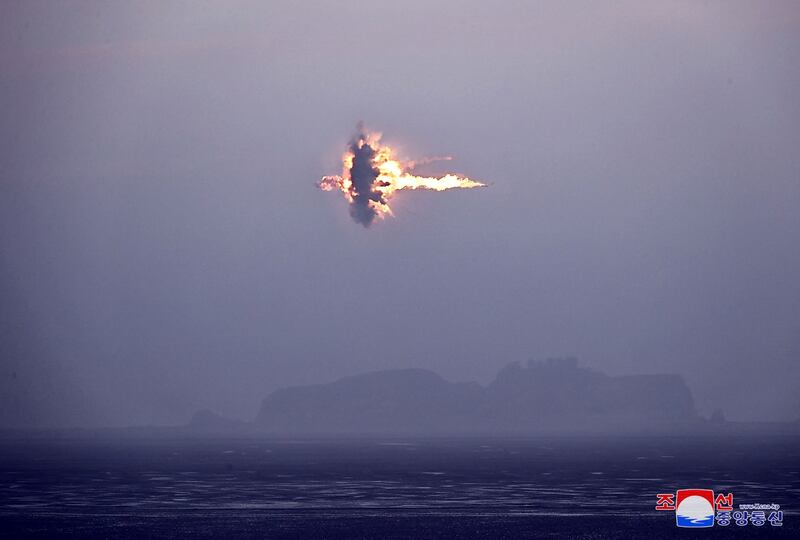South Korea’s President Yoon Suk Yeol has issued a fresh warning to North Korea Monday, urging Pyongyang to halt its nuclear program if it wants to avoid regime instability.
“North Korean authorities are wasting scarce financial resources on the development of nuclear and missile capabilities,” Yoon said in a written interview with the Associated Press. “Consequently, the hardships faced by North Koreans in their everyday lives are worsening, and its economy continues to register negative growth.
“Amid such circumstances, unless North Korea stops its nuclear development, the regime’s instability will continue to increase.”
The South Korean leader on Monday also pressed China to take “constructive efforts to denuclearize North Korea.” He added that Beijing must realize Pyongyang’s nuclear provocations pose “a negative effect on China’s national interests by further disrupting regional order among other things.”
Yoon’s remarks came on the heels of North Korea’s simulated strike on the South on Saturday, in what Pyongyang called a “tactical nuclear attack” drill to bolster its nuclear capability against Washington and Seoul.
North Korea launched two cruise missiles carrying mock nuclear warheads towards the West Sea of the Korean peninsula. The missiles traveled about 1,500 kilometers (932 miles) for more than two hours, before detonating at an altitude of 150 meters, the official Korean Central News Agency said. While firing cruise missiles isn’t prohibited by the U.N., they present a significant threat to U.S. troops stationed in South Korea.

The North’s repeated nuclear provocations, combined with U.S.-China rivalry, have placed the Korean peninsula at the forefront of the ideological clash between democracy and authoritarianism. While Pyongyang’s provocations have strengthened trilateral security cooperation among the U.S., South Korea and Japan, both China and Russia are defending North Korea on the international stage, with the North reciprocating this backing.
“The international community must clearly demonstrate that its determination to stop North Korea’s nuclear program is much stronger than North Korea’s will to continue developing it,” Yoon, who is set to attend ASEAN and the G20 summits this week, said.
Cruise missiles pose a major security challenge to Seoul and U.S militaries stationed in South Korea, said Cheon Seong-whun, a former security strategy secretary for South Korea’s presidential office.
“They are challenging to intercept, and arguably, there's no current defense system entirely adequate against them,” Cheon noted. “Given North Korea declaring its intention to deploy nuclear warheads on the cruise missiles, the allies must strategize and respond accordingly.”
“The allies must address this issue within the NCG framework agreed upon by the United States and South Korea,” the former aide continued.
Saturday’s launches also coincided with the end of the U.S. and South Korea’s 11-day training exercises, which North Korea had labeled as invasion rehearsals.
The U.S. and South Korea held their inaugural Nuclear Consultative Group (NCG) meeting in July, where they discussed “information sharing, consultation mechanisms, and joint planning and execution to enhance nuclear deterrence against North Korea,” according to South Korea’s presidential office.
The NCG framework was announced during the bilateral summit in Washington in April against the backdrop of growing demands in South Korea for its nuclear armament in light of Pyongyang’s escalating nuclear threats.
North Korea has been ramping up its nuclear provocation over the past few weeks. The country disclosed that it had performed a “scorched earth” nuclear strike simulation targeting South Korea on Thursday. Earlier in the same week, Kim Jong Un characterized the heads of the U.S., South Korea, and Japan as “gang bosses,” in an apparent derision to the three leaders’ summit on Aug.18 in Camp David, Maryland.
In response, the U.S. and South Korea imposed sanctions on individuals and entities implicated in illicit financing for weapons of mass destruction programs.
Edited by Elaine Chan and Taejun Kang.
